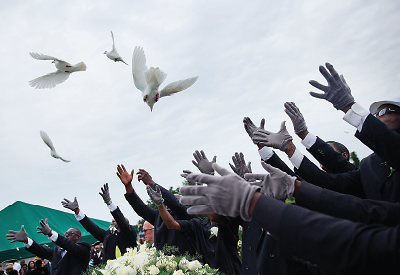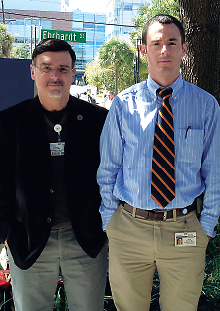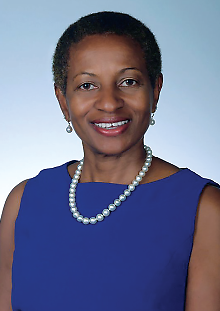Mental Health Community in Charleston Offers Services, Support in Wake of Violence
Abstract
Psychiatrists, psychologists, and social workers in South Carolina banded together to respond following the racially motivated killings of nine African-American churchgoers in Charleston, S.C.
Shortly after a gunman murdered nine churchgoers at the Emanuel African Methodist Episcopal Church in Charleston, S.C., on June 17, faculty members from the Medical University of South Carolina’s (MUSC) Department of Psychiatry and Behavioral Sciences were supporting recovery and resilience efforts as part of a unified community response.

Pallbearers release doves over the casket of one of the nine people killed in the shooting at Emanuel AME Church last month in Charleston, S.C. The South Carolina Psychiatric Association is looking for ways that psychiatry can support recovery efforts in the city and across the state.
MUSC is the only academic medical center in Charleston, and many people who attended the church also worked at the university, said Deborah Deas, M.D., M.P.H., a professor of psychiatry and behavioral sciences, associate dean of admissions, and senior associate dean for medical education at the College of Medicine at MUSC. The church organist, for instance, was a university employee.
“Everyone here was touched in some way by what had happened,” Deas told Psychiatric News. “Our president, David Cole, M.D., called for a prayer service the next day, and the auditorium and an overflow room were both filled to standing room only.”
Other South Carolina Psychiatric Association (SCPA) members, along with clinicians from the Charleston Dorchester Area Mental Health Center and MUSC’s National Crime Victims Center, supported the family assistance center coordinated by the Federal Bureau of Investigation to help those affected by the tragedy.
The National Crime Victims Center conducts research and also offers evidence-based clinical services, professional education, and consultation services. Their close connection with MUSC psychiatrists, psychologists, and social workers and with the Charleston community helped speed the response, said psychiatrist Edward Kantor, M.D., SCPA district branch disaster liaison and an associate professor and director of residency training at MUSC.

David Beckert, M.D. (left), and Edward Kantor, M.D., of the Medical University of South Carolina assisted in the immediate aftermath of the church shooting and also began longer-term planning to help fellow psychiatrists across the state respond over the coming months.
“Many families are affected, not just those in Charleston,” SCPA Vice President David Beckert, M.D., an assistant professor of psychiatry at MUSC, told Psychiatric News. “We are sifting through evidence-based material to help well people who are affected by the event but are not psychiatrically ill. They still need assistance in recovering.”
(Kantor and Beckert contributed chapters to the American Psychiatric Association Publishing book Disaster Psychiatry: Readiness, Evaluation, and Treatment.)
Healing will be a slow process because memories of the victims and the event will no doubt continue to arise, they said.
“Folks are going through various stages of the grief process,” said Deas. “They may be gracious, quiet, and calm now, but it may hit them in another way eventually. We are aware that the trial in October will bring back reminders of this time.”
As part of her response to the event, Deas sent an email to faculty, residents, medical students, and staff members offering counseling services. They also assisted colleagues in other departments around the hospital who would be seeing patients in some way affected by the tragedy but who were not likely to be trained in how best to respond to trauma-exposed patients.

Mental health clinicians of all kinds joined together to help fellow residents of Charleston, S.C., begin the slow recovery after the murder of nine church members in the city, says Deborah Deas, M.D., M.P.H.
Members of MUSC’s Department of Psychiatry also attended community meetings around the city, in part to be available but mainly to advise attendees of the services that were available, if needed. A frequent point raised during community meetings was how to explain to children how to make sense of an incomprehensible act, Deas said.
The SCPA began a broad needs assessment, in partnership with state and local partners, looking for concrete ways that psychiatry can support recovery efforts in the city and across the state, added Beckert.
“We will be present as people need the assistance and care that we know they will need in the future,” said Deas.
Kantor was impressed by the spontaneous, multi-faith, multi-ethnic outpouring of unity and support in the city and state after the tragedy: “It feels like there is a genuine effort across the board to really come together in good faith to figure out how to move forward together.”
Deas, who has lived most of her life in or near Charleston, also added her desire that some greater meaning might arise from the event.
“I just hope and wish and pray that people will continue on this path of promoting love and unity,” she said. “And I hope we can also begin to deal with the issues around race brought to the forefront by this tragedy.” ■



